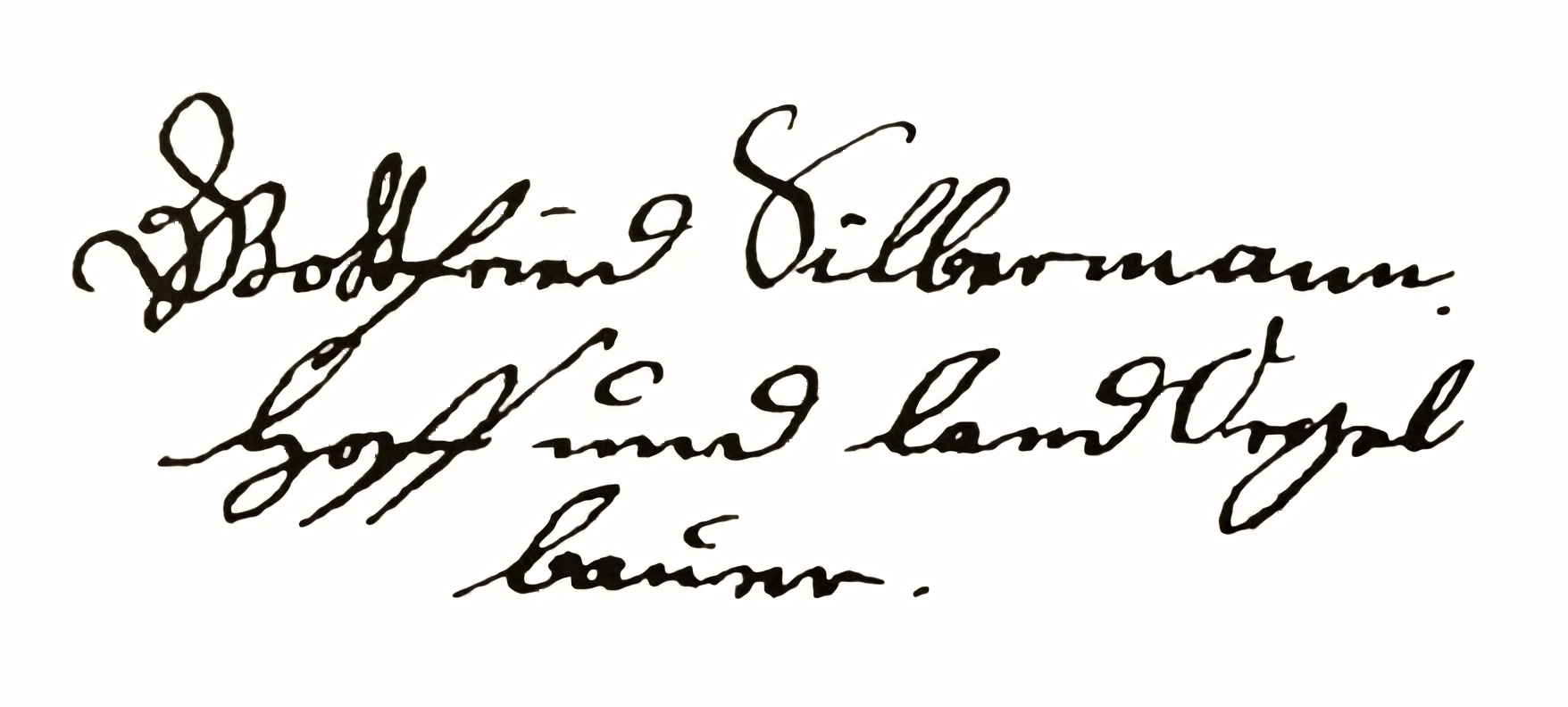G. Silbermann
| Founded/Born - Closed/Death | 1683 - 1753 |
|---|---|
| Still active? | no |
| Webpage | https://silbermann.org/silbermann-haus/ |
Gottfried Silbermann, born on January 14, 1683, in Kleinbobritzsch and passing away on August 4, 1753, in Dresden, is renowned as the most significant organ builder of the Baroque era in central Germany. He integrated Alsatian influences into Saxon organ building, creating instruments that were renowned during his lifetime. Of the 50 organs Silbermann built, 31 survive, significantly shaping Saxony's organ landscape. The organs crafted by him, his brother Andreas Silbermann, and his nephew Johann Andreas Silbermann are globally known as "Silbermann organs." Additionally, Gottfried Silbermann constructed stringed keyboard instruments, including harpsichords, clavichords, and fortepianos, driving their evolution forward.
Silbermann's family lineage traces back to his great-grandfather Georg in Kleinbobritzsch. His father, Michael Silbermann, was a farmer and later a carpenter. Gottfried, along with his brother Andreas, attended the town school in Frauenstein. Contrary to previous claims, Silbermann's letter suggests an early interest in organ building, not a bookbinding apprenticeship. He journeyed to Strasbourg in 1702 to learn organ building under Andreas. Returning to Saxony in 1710, Silbermann established his workshop in Freiberg, building his first German organ in Frauenstein in 1711. He gained recognition for his craftsmanship and garnered support from figures like Thomaskantor Johann Kuhnau.
Silbermann's pragmatic approach led to prosperity, despite occasionally underpricing his work. His ability to secure contracts and establish a near-monopoly position in the market allowed him to maintain financial stability. Silbermann's feud with Zacharias Hildebrandt over apprenticeship led to legal disputes resolved by the ruling of Elector Frederick Augustus I. Although Johann Sebastian Bach criticized some aspects of Silbermann's instruments, they eventually collaborated on assessing a newly built organ. Silbermann's illness in 1749 led him to delegate projects and eventually succumb to gout in 1753, leaving his nephew Johann Daniel Silbermann as his heir.
In his organ building, Silbermann adhered to a consistent design concept, integrating French influences initially and later developing his unique style. His organs were renowned for their durability, craftsmanship, and rich tonal quality. Silbermann's innovation extended to stringed keyboard instruments, including harpsichords, clavichords, and fortepianos, influencing the evolution of keyboard instrument construction. His hammer pianos, in particular, garnered acclaim and were sought after by European courts, contributing significantly to the history of keyboard instruments. Silbermann's legacy lives on through his surviving instruments and the influence he exerted on subsequent generations of organ builders and keyboard instrument makers.
Silbermann's family lineage traces back to his great-grandfather Georg in Kleinbobritzsch. His father, Michael Silbermann, was a farmer and later a carpenter. Gottfried, along with his brother Andreas, attended the town school in Frauenstein. Contrary to previous claims, Silbermann's letter suggests an early interest in organ building, not a bookbinding apprenticeship. He journeyed to Strasbourg in 1702 to learn organ building under Andreas. Returning to Saxony in 1710, Silbermann established his workshop in Freiberg, building his first German organ in Frauenstein in 1711. He gained recognition for his craftsmanship and garnered support from figures like Thomaskantor Johann Kuhnau.
Silbermann's pragmatic approach led to prosperity, despite occasionally underpricing his work. His ability to secure contracts and establish a near-monopoly position in the market allowed him to maintain financial stability. Silbermann's feud with Zacharias Hildebrandt over apprenticeship led to legal disputes resolved by the ruling of Elector Frederick Augustus I. Although Johann Sebastian Bach criticized some aspects of Silbermann's instruments, they eventually collaborated on assessing a newly built organ. Silbermann's illness in 1749 led him to delegate projects and eventually succumb to gout in 1753, leaving his nephew Johann Daniel Silbermann as his heir.
In his organ building, Silbermann adhered to a consistent design concept, integrating French influences initially and later developing his unique style. His organs were renowned for their durability, craftsmanship, and rich tonal quality. Silbermann's innovation extended to stringed keyboard instruments, including harpsichords, clavichords, and fortepianos, influencing the evolution of keyboard instrument construction. His hammer pianos, in particular, garnered acclaim and were sought after by European courts, contributing significantly to the history of keyboard instruments. Silbermann's legacy lives on through his surviving instruments and the influence he exerted on subsequent generations of organ builders and keyboard instrument makers.
No YouTube videos available.
Make this Notebook Trusted to load map: File -> Trust Notebook
https://de.wikipedia.org/wiki/Gottfried_Silbermann
 Pipe Organ Map
Pipe Organ Map